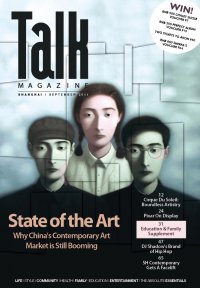DJ Shadow Sheds Light on Shanghai

Considered a god by many in the hip hop world, DJ Shadow makes his second Shanghai appearance this month at the Mixing Room by Muse. Taking a moment out of his busy tour schedule, the American speaks about his infamous record digging and the state of hip hop and turntablism.
By 2005, there was a large group of fans that seemed to only clamber for a rehashed version of Endtroducing. How did you feel about this attitude and how did you respond to it?
I responded by making my last album, The Outsider. It was a provocation and a challenge to my fan base. It was essentially my way of saying, ‘The train isn’t going to stop, so if you want to get off, get off now.’ I think it was a very important message to send, because I never want to be beholden to any fan standard. I think that’s when artists begin to stagnate.
In your more than extensive record collection, what are a few of your personal or sentimental favourites?
I usually just think of my most recent trip or adventure. Just today I found a pretty decent folk/psych album at a thrift store that I walked to while on tour. I try to have a very laissez-faire attitude about digging now. Things come to you as they are supposed to, there’s no point in getting desperate or over-stressed.
You are an avid fan of hip hop but have been highly critical of the state of the genre in the last 15 years or so. What went wrong?
In my opinion, the other components of hip-hop culture buckled under the weight and popularity of rap itself. Graffiti still exists, but it has little to do with original hip-hop culture. The same is true with break dancing. It’s sort of like an organism, if two or three arms and legs are removed, it makes it difficult to thrive. As a result, rap has become self-perpetuating and self-serving, a sure formula for decreasing inspiration.
Can you listen to a song and hear how it might be sampled against another, even before you mix the two songs?
It depends; sometimes. But usually it’s just a combination of ‘happy accidents’. It takes a long time for me to make my albums because I like to allow as much time as possible for such accidents to occur.
Why have you been such a vocal supporter of Bay Area hyphy music?
Well, it doesn’t really exist as a movement anymore, but when it was thriving, I felt it was important to support the music that was exploding around me. In my opinion, at that time, between 2003 and 2006, the most exciting rap music being made on the planet was being made in my hometown. The music represented the streets I was driving down, the people I was seeing and the air I was breathing. Of course I was going to support it, and I did everything I could to contribute to the movement, because we all knew it was going to burn bright and then be gone again. Sure enough, there hasn’t been much excitement musically in the Bay Area since then.


